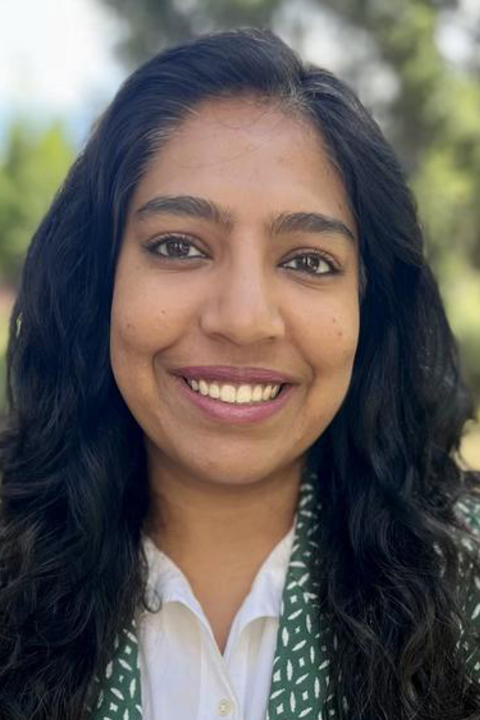Harini Kumar (Ph.D. University of Chicago) is a sociocultural anthropologist with research interests in lived religion, Islam and Muslim societies, kinship, gender, ethics, material culture, and migration. She is currently a Postdoctoral Associate at Yale’s Institute of Sacred Music and Lecturer in the Department of Anthropology. She is completing her first book manuscript, Formations of Tamil Islam: Religion, Mobility, and Placemaking in Asia, which is an ethnography of Muslim belonging from the perspective of Tamil-speaking Muslims. Kumar’s new research project on transoceanic Muslim mobilities explores the connections between South India, Sri Lanka, Southeast Asia, and the Americas through the enduring legacy of a Sufi saint. It traces present-day continuities with older, racialized networks of trade, indentureship, and migration, providing new perspectives on religious belonging that emerges from an interconnected ocean space.
Prior to joining Yale, Kumar held a two-year postdoctoral position at Princeton University. Her research has been supported by the Wenner-Gren Foundation, the American Institute of Indian Studies, the Center for Islam in the Contemporary World (Shenandoah University), and the Martin Marty Junior Fellowship (UChicago Divinity School). She was recently the co-curator of the two-year Power, Inequality, Dissent project at Princeton University, and co-PI in a multi-year, global research project titled Logistics in the Making of Mobile Worlds funded by the Neubauer Collegium for Culture and Society.
Kumar teaches courses on religious placemaking, lived religion, global cultures of dissent, material and visual culture, gender, and migration.
List of Publications
2024. “‘Nation at Repair, Women at Work’: Kinship, Dissent, and Citizenship in South India” in The South Asia Multidisciplinary Academic Journal (SAMAJ) https://doi.org/10.4000/136ki
2024. “Afterword: An Eiffel Tower at Nagore: Material Religion and Spectacular Assemblages at a South Indian Sufi Shrine” in Nidān: International Journal for Indian Studies https://doi.org/10.58125/nidan.2024.2.27532
2021. [Book Review] Redding, Jeffrey. A. A Secular Need: Islamic Law and State Governance in Contemporary India (University of Washington Press), for The Journal of Asian Studies 80 (4). DOI: 10.1017/S0021911821001959
2020. “Ethnographic Disruption in the Time of COVID-19.” Anthropology News website, May 22, 2020. DOI: 10.1111/AN.1406
2020. “Un/boxing Fulfillment: A Field Guide to Logistical Worlds. ” Allegra Lab (co-authored with Julie Chu, Kenzell Huggins, Jack Mullee and Heangjin Park).
